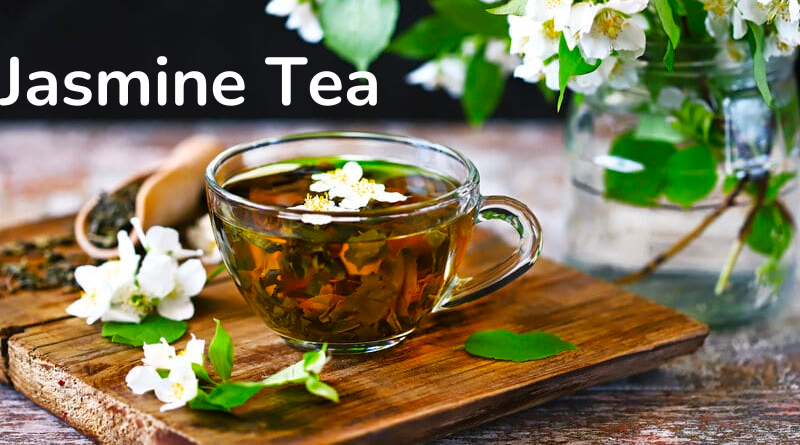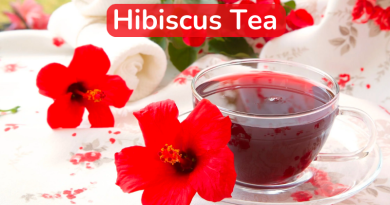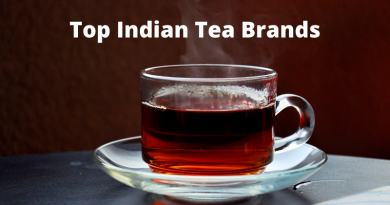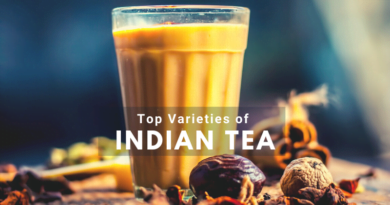Jasmine Tea: A Tasty and Fragrant Addition to Your Tea Collection
Jasmine tea is a fragrant and flavorful variety of tea that has captivated tea lovers for centuries. This tea is made by blending tea leaves with jasmine blossoms, which gives it a unique aroma and flavor profile. Originating in China, jasmine tea has become a popular beverage around the world, appreciated not only for its delicate taste but also for its many health benefits. In this article, we’ll explore the history and culture of jasmine tea, its various types and flavors, the health benefits of jasmine tea, and tips on how to brew the perfect cup of jasmine tea. Whether you’re a seasoned tea drinker or a curious novice, read on to discover the secrets of this fragrant and delightful tea.
Also Read : Hibiscus Tea Health Benefits
Health Benefits of Jasmine Tea
Jasmine tea is not only known for its floral aroma and delicate flavor but also for its numerous health benefits. Here are some of the key jasmine tea benefits:
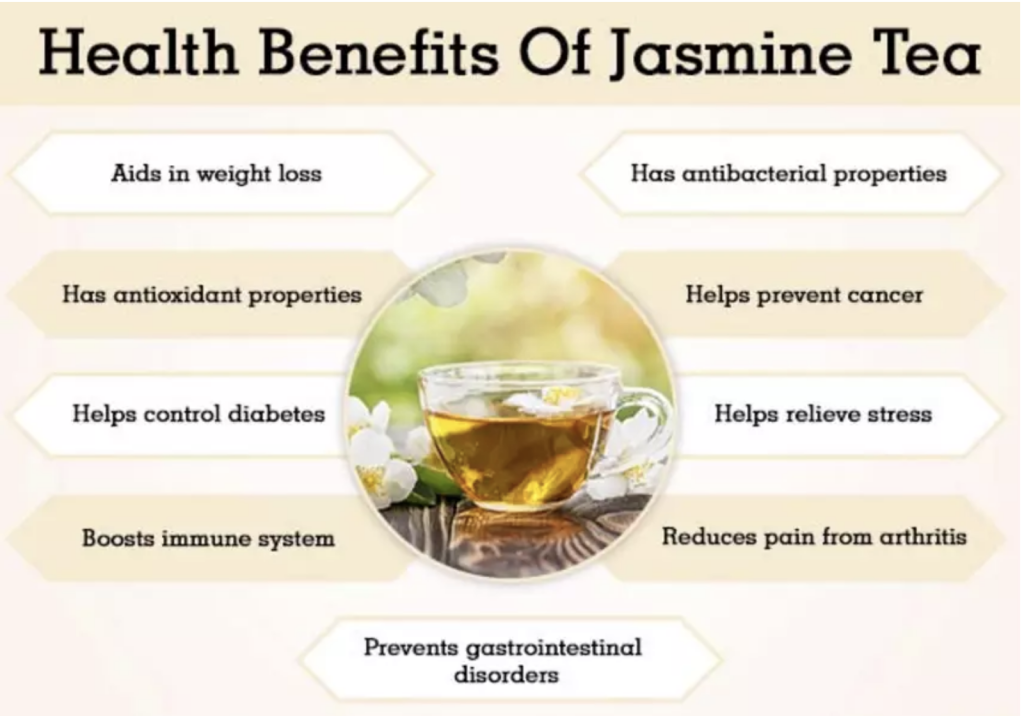
Antioxidants and Anti-inflammatory Properties
Jasmine tea contains antioxidants that protect the body from damage caused by free radicals, which are unstable molecules that can lead to oxidative stress. Additionally, the anti-inflammatory properties in jasmine tea help to reduce inflammation in the body.
Boosts Immune System
Jasmine tea is rich in catechins, a type of flavonoid that helps to boost the immune system and fight off infections. Regular consumption of jasmine tea can help to protect the body against colds, flu, and other common illnesses.
Reduces Stress and Anxiety
The aroma of jasmine tea has a calming effect on the mind and can help to reduce stress and anxiety. Drinking jasmine tea can promote relaxation and improve mental clarity, making it a great choice for those looking to unwind after a long day.
Promotes Heart Health
Jasmine tea is believed to have a positive effect on heart health. The antioxidants and anti-inflammatory compounds in jasmine tea help to reduce the risk of heart disease and stroke by preventing the buildup of plaque in the arteries.
May Help with Weight Loss
Jasmine tea is a low-calorie drink that can help to promote weight loss when combined with a healthy diet and regular exercise. The caffeine in jasmine tea can also boost metabolism and increase energy levels, helping to burn more calories throughout the day.
Types of Jasmine Tea
Jasmine tea is available in various types, each with its unique flavor and aroma. Here are the four main types of jasmine tea:
Green Jasmine Tea
Jasmine green tea is made by blending jasmine flowers with green tea leaves, resulting in a delicate and fresh flavor. The tea has a pale green color and is known for its floral aroma and slightly sweet taste. Green jasmine tea is often enjoyed as a refreshing and soothing beverage that can be enjoyed at any time of the day.
White Jasmine Tea
White jasmine tea is made by blending jasmine flowers with white tea leaves, resulting in a subtle and delicate flavor. The tea has a light color and is known for its sweet and floral aroma. White jasmine tea is often enjoyed as a relaxing and soothing beverage that can help to reduce stress and anxiety.
Black Jasmine Tea
Black jasmine tea is made by blending jasmine flowers with black tea leaves, resulting in a robust and full-bodied flavor. The tea has a dark color and is known for its bold and floral aroma. Black jasmine tea is often enjoyed as a morning or afternoon tea that can provide a boost of energy and mental clarity.
Jasmine Oolong Tea
Jasmine oolong tea is made by blending jasmine flowers with oolong tea leaves, resulting in a rich and complex flavor. The tea has a golden color and is known for its sweet and floral aroma, with hints of nuttiness and fruitiness. Jasmine oolong tea is often enjoyed as a relaxing and meditative tea that can help to promote mental clarity and focus.
Jasmine Milk Tea
Jasmine milk tea, also known as jasmine boba tea, is a popular variant of jasmine tea that is blended with milk and sweetened with sugar. The addition of milk and sugar creates a creamy and sweet flavor that complements the floral notes of the jasmine tea.
To make jasmine milk tea, jasmine tea leaves are steeped in hot water and then combined with milk and sugar. The tea is then served over ice or with boba pearls, which are small, chewy tapioca balls that add a fun texture to the drink. Some variations of jasmine milk tea may also include other flavorings such as vanilla, honey, or lavender.
How to Make Jasmine Tea:
Jasmine tea is a popular and fragrant beverage that can be enjoyed hot or cold. Here are the steps to make jasmine tea at home:

Ingredients:
- 1 tablespoon loose-leaf jasmine tea or 1 jasmine tea bag
- 8 ounces of water
- Optional: sweetener, milk, lemon, or mint for flavor
Instructions:
- Boil water in a kettle or pot. If using loose-leaf jasmine tea, place the tea leaves in a tea infuser or strainer.
- Pour the hot water over the tea leaves in a cup or teapot.
- Steep the tea for 2-3 minutes to allow the jasmine flavor to infuse into the water. Do not oversteep the tea, as it may become bitter.
- Remove the tea leaves or tea bag from the water.
- Add sweetener, milk, lemon, or mint to taste, if desired.
- Serve the tea hot or cold, depending on your preference.
Variations:
- For a stronger jasmine flavor, add more tea leaves or steep the tea for a longer time.
- To make jasmine milk tea, add milk and sweetener to taste after steeping the tea.
- For a refreshing twist, serve the tea over ice and add a slice of lemon or mint leaves.
Jasmine Tea Caffeine
Jasmine tea does contain caffeine, with an average of 25-50 mg of caffeine per 8-ounce cup. The amount can vary depending on the type of tea and the brewing method. If you are sensitive to caffeine or prefer to avoid it, consider limiting your consumption of jasmine tea or choosing a decaffeinated variety.
Conclusion
In conclusion, jasmine tea is a fragrant and flavorful beverage that has been enjoyed for centuries in many cultures around the world. With its delicate floral aroma and health benefits, it is no wonder that jasmine tea has become a popular choice among tea enthusiasts and casual drinkers alike. Whether you prefer it hot or cold, with milk or without, there are many types and variations of jasmine tea to explore and enjoy. From brewing your own cup at home to exploring different tea shops and online retailers, there are many ways to discover the joy of jasmine tea and all it has to offer.
FAQs
Does jasmine tea contain caffeine?
A: Yes, jasmine tea does contain caffeine. The amount of caffeine can vary depending on the type of tea and the brewing method, but in general, jasmine tea contains about 25-50 mg of caffeine per 8-ounce cup. This amount is lower than the caffeine content in coffee but higher than some herbal teas. If you are sensitive to caffeine or prefer to avoid it, you may want to limit your consumption of jasmine tea or choose a decaffeinated variety.
What is jasmine tea good for?
A: Jasmine tea is known to have a variety of health benefits, including reducing stress and anxiety, promoting relaxation, improving digestion, boosting immunity, and reducing the risk of certain chronic diseases. It is also a good source of antioxidants and can help support healthy skin and teeth.
Is jasmine tea green tea?
A: Jasmine tea can be made with different types of tea as its base, including green tea, black tea, and oolong tea. However, jasmine tea is commonly associated with green tea. Green tea leaves are scented with jasmine flowers, which infuse the tea with a delicate floral aroma and flavor. Therefore, jasmine tea can be a type of green tea, but it can also be made with other types of tea as well.
What does jasmine tea tasted like?
A: Jasmine tea has a delicate and floral taste with a subtle sweetness and a light astringency. The tea has a smooth and refreshing mouthfeel and a lingering aroma of jasmine flowers. The flavor profile can vary depending on the type of tea used as the base and the quality of the jasmine flowers used to scent the tea.

